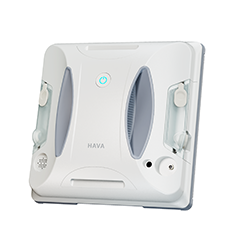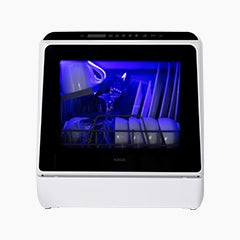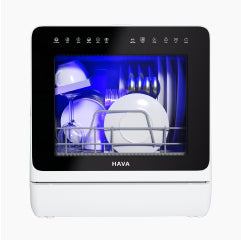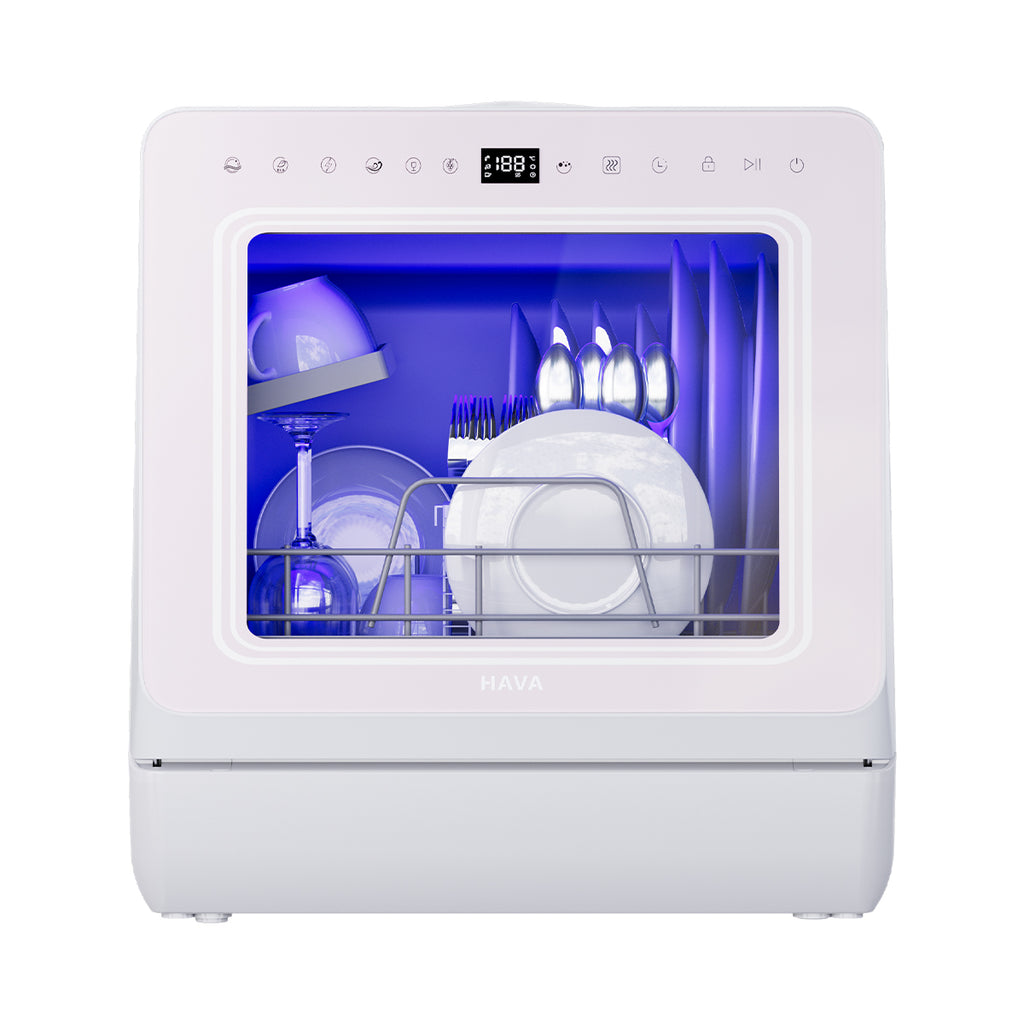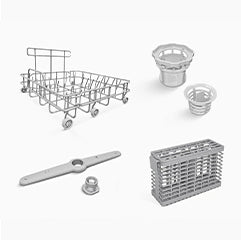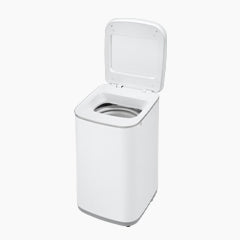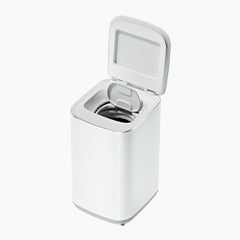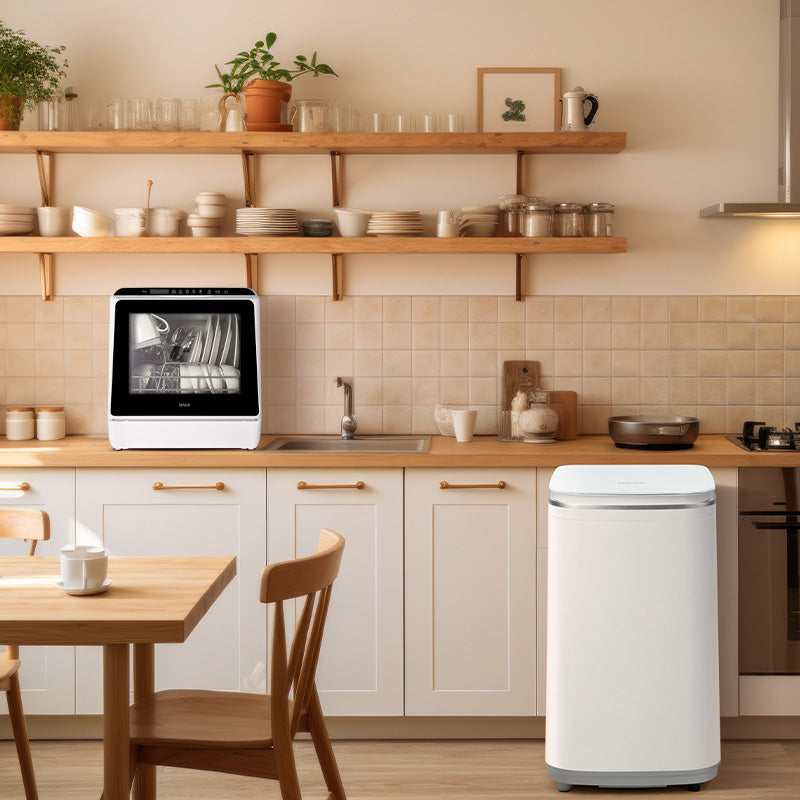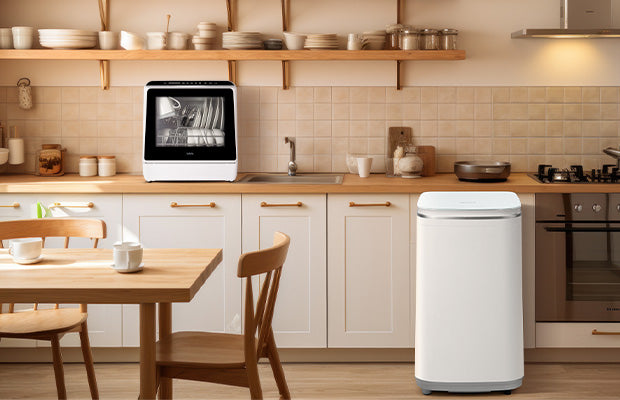
Doing laundry is tougher when you don't have much space. But a small washing machine can help! But before you shop for a small washer, there are important things you need to consider. In this article, we will explain 11 key facts about portable washers so you can pick the right one.
We will overview critical specifications like differences between auto washing machines and manual washing machines, capacity, dimensions, wash programs, water usage, spin speed, noise level, and more.If you are limited on space but still need a reliable laundry solution, understanding key details like whether the unit has a top or front load design, integrated dryer, portable or stationary installation, and other features of Minnie washing machines, will ensure you select the right compact washer to meet your needs and lifestyle.
Getting the facts beforehand on sizing, controls, efficiency, venting, and other buying considerations will prepare you to shop smart when investing in a small but mighty washing appliance.
1. What is a Small Washing Machine?
A small washing machine refers to a compact, portable laundry appliance designed for small loads of items. With maximum dimensions under 24 inches wide, these auto washing machines allow convenient laundry capabilities even in tight spaces.
Other names used can include hand clothes washers or countertop washing machines. While some are scaled down in load capacity compared to full-size models, small washing machines provide efficiency, convenience, and adaptability using less water and electricity.
2. What are the types of small washing machines? And which is better?
|
Type |
Pros |
Cons |
|
Small Manual Washing Machine |
Inexpensive upfront cost, Compact size, Low water, and electricity usage |
Requires manual labor for washing, Lower efficiency for larger loads, not suitable for heavy fabrics |
|
Small Auto Washing Machine |
Fully automatic operation, Smoother on fabrics, Effective for various fabrics |
Higher upfront cost, larger size, Higher electricity/water usage |
|
Small Semi-Auto Washing Machine |
Convenient operation, Improved wash efficiency, Gentle on clothes |
Requires spinning by hand, larger footprint, Moderate spin efficiency |

Determining the best type depends on factors like your budget, portability needs, available power connections, desired level of automation, and similarity in wash performance to larger capacity machines.
3. Does Small Washing Machine Work?
Yes, small washing machines effectively clean clothes despite their compact size.
Today's hand clothes washers harness rotation and agitation, powered by electric motors to create cleaning action allowing water and detergent to penetrate fabrics, dissolve stains and odors, and rinse away residue. Sturdy components like stainless steel tubs resist corrosion and stand up to regular loads.
With a capacity ranging from a few pounds to 10+ pounds for some auto top loaders, they conserve resources like water and electricity.
4. Where Can You Use Small Washing Machine?
The portable size and adaptability of small washing machines make them convenient for use in a wide variety of situations such as Apartments,Dorms,RVs, Bathroom and so on. Their lightweight, and compact footprint allows easy transportation for off-grid laundry functionality while camping or living in a recreational vehicle.
For apartment or condo dwellers, they provide in-unit laundry without remodeling or large equipment. Small washing machines are also handy for vacation homes, rental properties, or anywhere with limited space that standard washers won't fit.

5. What Should You Consider When Shopping for the Best Small Washing Machine?
When searching for the best small washing machine, several crucial factors should guide your decision-making. Firstly, consider the appliance's size and capacity, ensuring it fits your space and accommodates your laundry requirements. Choose between manual, automatic, or semi-automatic machines based on your preferences and lifestyle. Prioritize energy efficiency to save on electricity costs and minimize environmental impact.
Opt for user-friendly features and controls for ease of use, and factor in maintenance requirements and associated costs. Assess washing performance, ensuring the machine effectively cleans various fabrics and handles diverse load sizes. Look for adjustable spin speeds for improved drying, and consider noise levels, especially if the machine will be placed in living spaces.
Compare prices and features to find the best value for your budget, and research brand reputation and user reviews to ensure durability and customer satisfaction. Additionally, consider water consumption and explore additional features such as delay start, quick wash cycles, or smart technology, depending on your preferences. By carefully weighing these considerations, you can confidently select the best small washing machine tailored to your specific needs and lifestyle.
6.What Can You Wash in a Small Washing Machine?
A small washing machine, whether auto or manual, is versatile for washing various items. It accommodates clothing, bed linens, and small fabric items effectively.
Auto washing machines handle diverse fabrics efficiently, while manual washing machines are ideal for delicate items, offering a more hands-on approach. Both types of small washing machines are suitable for light loads and contribute to energy and water efficiency in laundering tasks.

7. Do Small Washing Machines Use a Lot of Electricity and Water?
Small washing machines are designed to be energy and water-efficient. Their compact size generally results in lower electricity consumption and reduced water usage compared to larger machines. This makes them an eco-friendly choice for laundry tasks while maintaining effectiveness and convenience.
With shorter cycle times and smaller load capacities, small auto washers use fewer resources to achieve the same cleaning results per pound of laundry as their full-sized counterparts.
8. How to Use a Small Washing Machine?
Using a small washing machine, such as a countertop washing machine, is straightforward. Start by sorting your laundry based on colors and fabrics. Load the machine with the appropriate amount of clothes, avoiding overloading. Add detergent according to the machine's guidelines. Select the wash cycle and water temperature suitable for your laundry.
For hand washing machines, manually agitate the clothes for a thorough cleanse. Once the cycle is complete, remove the clothes promptly.
Small washing machines are efficient for smaller loads, offering convenience and water conservation, making them an excellent choice for quick and easy laundry tasks.
9. How Long Does a Small Washing Machine Last?
A compact washing machine's lifespan usually spans between five and ten years, this is subject to the frequency of use and upkeep. These compact appliances' lifespan can be increased by regularly cleaning them, adhering to manufacturer instructions, and quickly resolving any problems.
10. What Can You Do to Extend the Lifespan of a Small Washing Machine?
To prolong the life of your small washing machine, whether it's automatic or manual, start by routinely maintaining its interior. This includes cleaning the drum and detergent compartments to prevent the accumulation of residues. Avoid overburdening the machine, as this could strain its motor and components. Use the recommended detergent amount to prevent excessive suds and reduce strain on the pump. Regularly check and clean the lint filter to sustain optimal performance.
Ensure the machine is positioned on a level surface to minimize excessive vibration. If applicable, inspect and clean the inlet valve filter to prevent water flow issues.
Lastly, promptly address any malfunctions by consulting the manufacturer's guidelines or seeking professional assistance. This proactive approach will ensure that your small washing machine operates efficiently for an extended period.
11. What are the Differences Between Small Washing Machine and Traditional Washing Machine?
|
Feature |
Small Washing Machine |
Traditional Washing Machine |
|
Size and Weight |
Typically, compact < 24 inches |
Larger > 27 inches, fixed install |
|
Operating Mode |
Manual, semi-automatic, simple operation |
Fully automatic operation |
|
Installation |
No wiring or plumbing uses hookup hoses |
Requires expert wiring and plumbing |
|
Capacity |
Around 10 lbs or less |
20+ pound capacity |
|
Power Source |
Manual, electric, battery |
Primarily electric |
|
Washing Effectiveness |
Good for small, light loads |
Effective for large, heavy loads |
|
Resource Consumption |
Lower electricity and water use |
Higher electricity and water use |
|
Wash Time |
Shorter cycles |
Longer cycles |
|
Automation Level |
Manual or semi-automatic |
More customized programs |
|
Noise Level |
Typically, quieter |
Can be louder |
|
Cost |
Lower upfront cost |
Higher initial cost |

12. Conclusion
This article outlined everything you need to know about purchasing a small washing machine suited for RVs, apartments, or anywhere space is limited. We covered the differences between manual washing machine, electric, and semi-automatic types, key buying considerations, and using scenarios. When choosing your petite washer, prioritize features like load capacity, dimensions, power source, cycles, and settings that best align with your needs and lifestyle.
For the optimal balance of convenience and efficiency in a tiny footprint, the HAVA 0.8 cu. ft compact top-loading washing machine truly delivers. With its stainless-steel drum construction holding over 6.6 pounds of laundry, 8 handy wash programs including 22-minute Quick mode, delay start and reload options, quiet operation, portable and space-saving 15” width design, plus energy and cost savings, this HAVA auto washer makes easy work of laundry. Enjoy fresh, clean clothes no matter how confined your living situation is with this mighty mini appliance!
